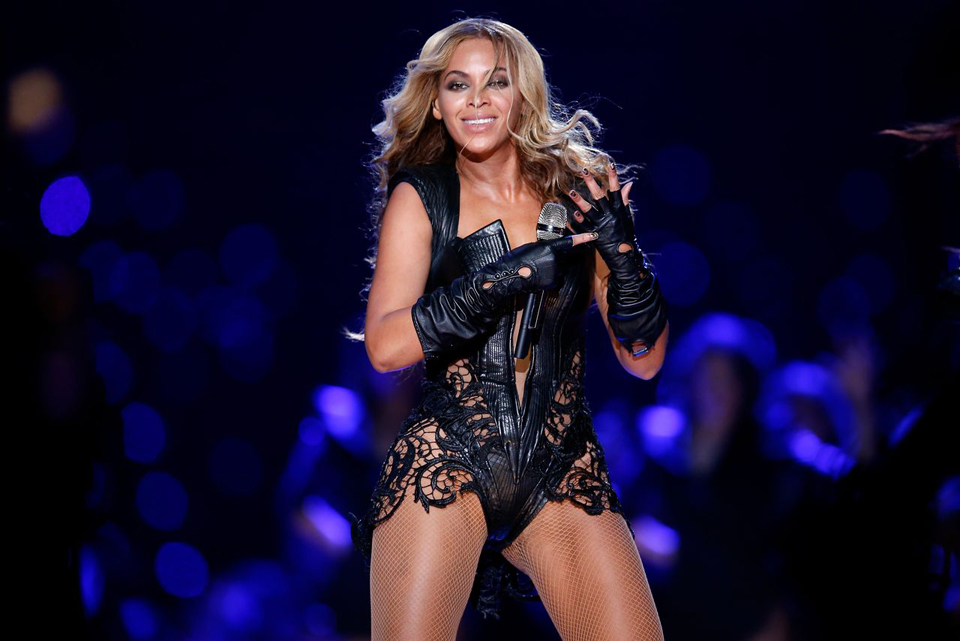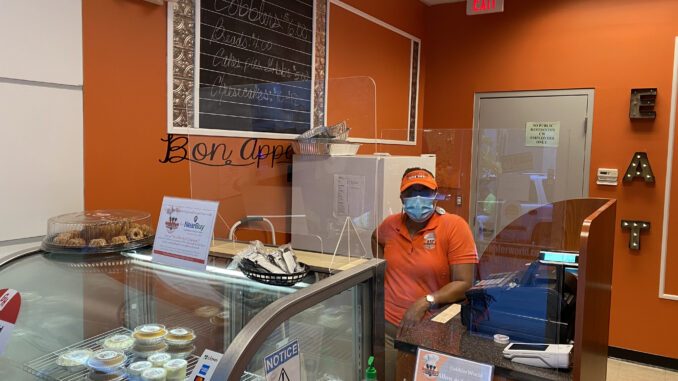
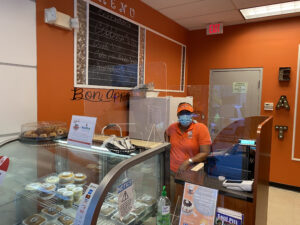
Gillian Fitzgerald | Staff Writer
11/12/2020
“It’s not fair — we work just as hard.”
Terina J. Hicks has experienced the inequities and the pressure of being a Black woman her whole life, and knows what it is to not only be Black in Pittsburgh, but to be the owner of a small Black-owned business: CobblerWorld.
The Duquesne alumna knew from a young age that she wanted to start “something,” she just didn’t know how or when that would come to fruition. After getting laid off from her job at Carnegie Mellon University in April 2014, she saw an opportunity for that “something” to come to life.
Hicks immediately went into business mode and officially created CobblerWorld in October of that year. This baked-good business was inspired by her childhood and the time she spent with her recently deceased mother, Mamie Lou, who taught her how to bake her famous peach cobbler when Hicks was 14 years old.
Once Hicks had peach down pat, she experimented with other fruits, which led to poundcakes, and then breads, and then cheesecakes — all the desserts she grew up on.
“That’s my niche — I do the nostalgic baked goods. I take you back to the good old days where life was simple, carefree,” Hicks said. “That’s what I do — all the old-fashioned stuff.”
What started as a business idea inspired by her mom turned into selling her desserts at farmers markets and bakeries, but ultimately, she opened a retail store of her own in 2015.
Located at 1059 Penn Ave. next to the Convention Center, Hicks loves owning her own business. She didn’t always want to work for others because she found that most people tried to stifle her, especially as a Black woman. But by being her own boss, she gets to determine her own fate.
However, being a small Black-owned business comes with other challenges: getting people to invest in her vision and financial aid.
No one is more dedicated than she is, which is why it’s difficult getting others to buy into her work when they aren’t as passionate about it as she is. Although this is often the case for many small businesses, being Black means she has to work even harder and fight to be the best, she said.
“We always have to go above and beyond because of the color of our skin, and it’s always been that way,” Hicks said.
This struggle to be seen and heard is just as apparent when it comes to resources for financial help, which are not readily available to her as a Black-owned business, especially during a pandemic, she said.
Two years ago, Hicks secured a loan from the Urban Redevelopment Authority (URA) for CobblerWorld and also recently received help from the URA’s COVID-19 relief fund, both “blessings in disguise” since financial difficulties have been further exacerbated due to the pandemic. But that help doesn’t solve everything for a commercial business Downtown — Hicks doesn’t get a break on rent or insurances.
She has applied for loans and aid programs, but has not heard back from any of them. Hicks believes this has nothing to do with bad luck or misfortune, and instead has everything to do with being Black, and she’s not alone.
The 2018 Small Business Credit Survey shows that minority-owned businesses have had more difficulty in receiving aid and have been less likely to be approved for loans, but even more so for Black-owned businesses. This research holds true today as well, as a survey done by Global Strategy Group for Color Of Change and UnidosUS reveals that 51% of Black and Latinx small business owners report applying to the Paycheck Protection Program for less than $20,000, but only 12% reported receiving the full amount they requested.
“I’ve applied to so many things, and I haven’t gotten one cent. We apply, we apply, we apply and get turned down. It was already hard before the pandemic, and trying to get funding to stay afloat is like pulling teeth — it’s not fair,” Hicks said. “Resources are not readily available for us as Black [people].”
Although some large companies have been inspired to pledge money or start programs specifically for Black-owned businesses — such as Facebook dedicating $40 million in grant money — so many business owners like Hicks have not seen these benefits, and don’t know where they’re going either.
“They talk the talk, but put some dollars behind what you’re saying … Put money behind people who will work hard and who are about their business,” she said.
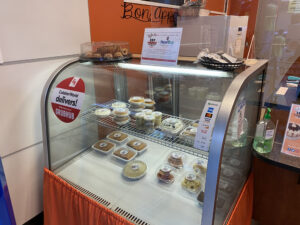
Shawn Harpley agrees with this logic. He is a construction worker at the Westin across the street from CobblerWorld and comes over during break to support the small business — and for the sweet potato cobbler.
“The reason I come is because she makes everything herself,” Harpley said.
Though customers like Harpley put thought behind their dollar, big companies that are supposed to provide aid often don’t. Hicks has emailed people and programs that tell her they are “still going through her paperwork for loans,” but she knows it’s not true. Being a Black-owned business means getting looked over while fighting to receive aid, Hicks said.
Hicks has experienced this first hand while finding space to grow her business as well.
As a baker, she needs a specific kitchen to make her desserts and avoid cross-contamination with restaurant equipment. Her store is the place where she sells her baked goods but doesn’t have a kitchen, so she rents out space in order to make her products.
Last year, she and other Black bakers had access to a kitchen in Mount Oliver, courtesy of the Bakery Society of Pittsburgh. The space was unique because it was a baker’s-only kitchen that was available day and night to accommodate specific hours and schedules.
However, the bakers using the space were kicked out in December 2019 when management decided to sell the space to a white restaurant chef without telling Hicks and the others who relied on the kitchen. She not only didn’t have a say in what was happening, but she was also left to struggle to find another kitchen — something her business cannot go without — without notice.
“It seems like they don’t want our businesses to survive,” Hicks said. “We have to jump through hoops … We don’t get anything, and we don’t understand why.”
Hicks is now working on constructing a commercial kitchen of her own so she doesn’t have to worry about something like this happening again. It’s tiring not receiving full support from the community she’s put her heart into, along with not seeing the unity from the Black community in Pittsburgh, she said.
In a special done by WTAE — a Pittsburgh television channel — the station released a Chronicle episode titled “Being Black in Pittsburgh” to highlight the challenges the Black community faces in the Steel City, along with the history of the Hill District’s destruction during the 1950s to make room for the Civic Arena, dispersing and driving Blacks from their home.
As a result, Black people were forced to spread out and migrate all over the city — businesses saw a decline, their community was demolished, and segregation sent Black families into public housing. As stated in the special, this downturn 60 years ago still has an impact on the Black community today through inequity in housing, jobs, income and education.
These challenges are even more apparent for Black women, who make 54 cents to every white man’s dollar. A study done by the city of Pittsburgh’s gender equity commision shows that Pittsburgh is the most un-liveable city for Black women, despite being known as one of the most liveable cities in the United States.
Hicks encourages people to watch the special, and believes her community needs to come back together to find that unity again to build each other up, and to build wealth too.
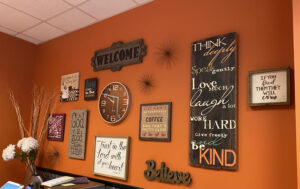
“We have to be a community and help those who are trying to make it, and then they reach back and help somebody else,” she said.
She is hopeful as movements involving young people, such as Black Lives Matter, bring awareness to issues, but still fears that Black people will always have to fight for everything in this country as they are not privy to the same privilege whites have.
As a small Black-owned business owner in Pittsburgh, Hicks is determined to persevere and make CobblerWorld exactly what the name says: world-renowned.
She urges the Duquesne community to go out and support Black-owned businesses in Pittsburgh. She wants students to research and think about them when in need of event catering, Christmas grab baskets or even when going out to eat with friends — to make it their business to seek out Black-owned businesses.
Hicks also encourages Duquesne’s Small Business Development Center to help teach and offer resources to small Black-owned businesses who struggle with business credit or need help applying to loans. Black-owned businesses are more likely to be excluded from opportunities and information that allow them to build their capital, according to a McKinsey & Company report, so reaching out and partnering with them will help break down the institutional barriers they face.
As a Duquesne alumna, Hicks wants students to be aware of how they can help, which includes visiting her Downtown at CobblerWorld. And as Duquesne students in need of good dessert or looking to spend money where it counts (or both), Mamie Lou’s Peach Cobbler is reason enough to make the trip.


